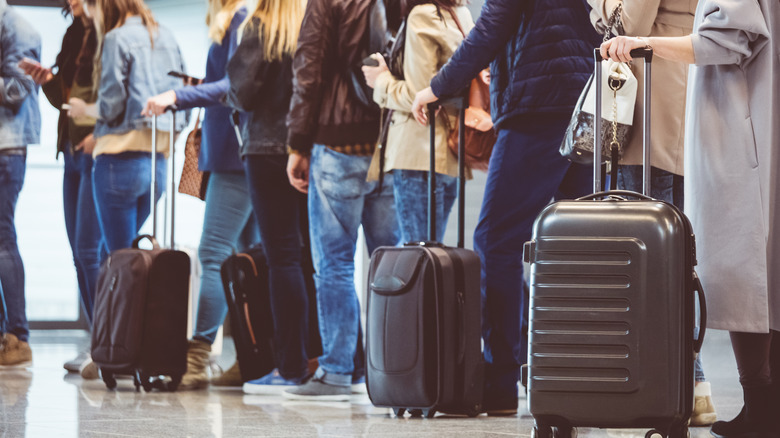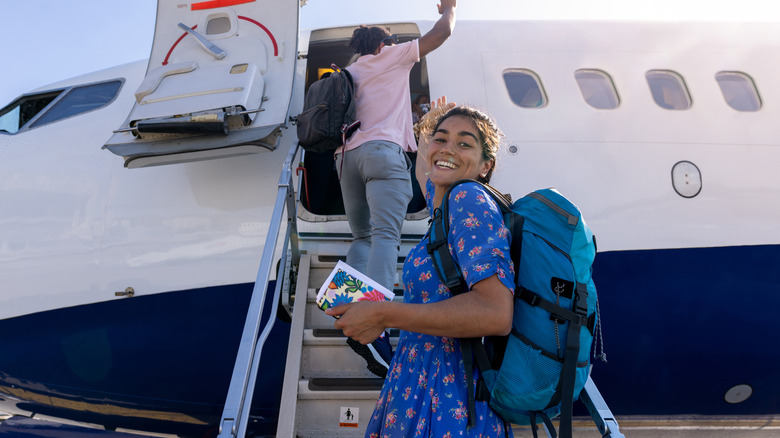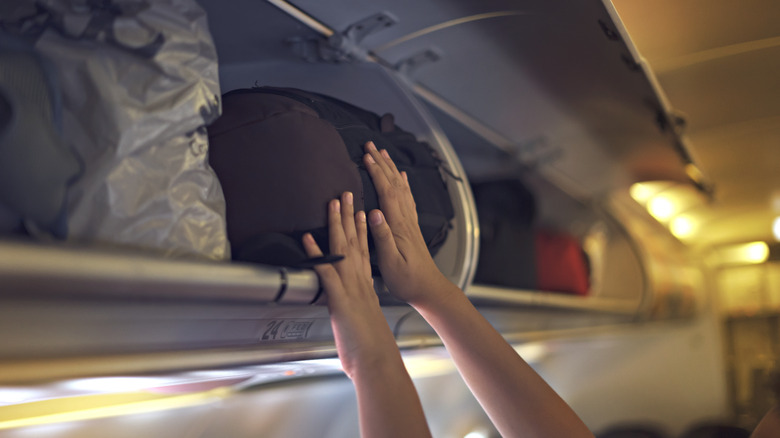If you’ve ever had to fight your way through a crowded airplane aisle, rolling your bag precariously behind you, looking for a safe place to store it, then you’ve probably wondered what the deal is with overhead bin space. Who’s taking all the room? And how is it possible that bins are full before everyone has boarded?
Well, it turns out that the answer is pretty simple: more people are bringing carry-ons than ever before. The reason for this, however, is a whole different story. From climbing prices to a worrisome increase in mishandled and lost luggage claims, travelers just don’t want to check a bag anymore — and who can blame them?
After all, who actively wants to pay anywhere from $30 to $89 for a checked bag — an additional cost to an already-expensive experience — when they can just cram all of their necessities into a little roller suitcase instead? The answer is … no one. All of which ultimately leads to travelers fighting for space and stuffing their personal belongings in every which way possible, and leaving others left to fend for themselves.
It all boils down to profits and costs

With its skyrocketing prices, decreasing quality of service, and shrinking legroom between each seat to accommodate even more crammed-in passengers, it seems like airlines have been working overtime to cut costs and make a profit at the expense of travelers’ comfort and convenience.
In reality, it wasn’t until 2008 that most major names started charging additional fees for checked luggage — and the trend has only grown since. While in their first year of doing so airlines collected around $1.2 billion dollars in fees, by 2023, checked baggage fees alone added up to nearly $5.4 billion dollars in revenue. With this in mind, it makes sense that airlines would want people to check their bags, right? After all, more checked bags means more money for them.
However, there’s a catch: since passengers don’t want to pay for checked bags, overstuffed overhead bins often lead to passengers struggling to find space for their luggage and get in their seats quickly, which then leads to delays, and ultimately results in late departures — all of which ends up costing the airline more money than it would like to spend. Their solution, however, is to get passengers to keep footing the bill. By toying with the idea of charging passengers to bring a carry-on on board, flying is close to becoming a never-ending cycle of increased fees and passenger dissatisfaction.
Tips for avoiding the overhead bin battle

If the idea of checking a bag — or paying for that service — still doesn’t vibe with you, there are certain steps you can take to avoid having to deal with overcrowded bins, pushy passengers, and stressed flight attendants on your next flight. First, there’s the idea of cutting back on what you bring along for your trip. From perfecting the art of packing light to choosing versatile clothing and compressing your items, making sure that you’re not bringing too much — and, therefore, lugging a too-large suitcase on board — is the safest way to avoid struggling with overhead bin space.
In addition to this, some airlines also offer a premium way to sneak around being left with no bin space: priority boarding. An add-on service that lets you board the plane faster, priority boarding means you’ll have plenty more options when it comes to choosing an overhead bin that’s right above your seat. However, keep in mind that services like this come at an extra cost — typically between $10 to $30 — which probably isn’t worth it if you’re already looking to cut back on what you’re paying.
Lastly, there’s always the option of gate-checking your bag. This service is typically free of charge, incredibly convenient, and ensures your bag is taken care of. The only catch is that you already need to have a carry-on allowance included in your ticket — otherwise, you’ll be left with no space and a potentially hefty fee.

